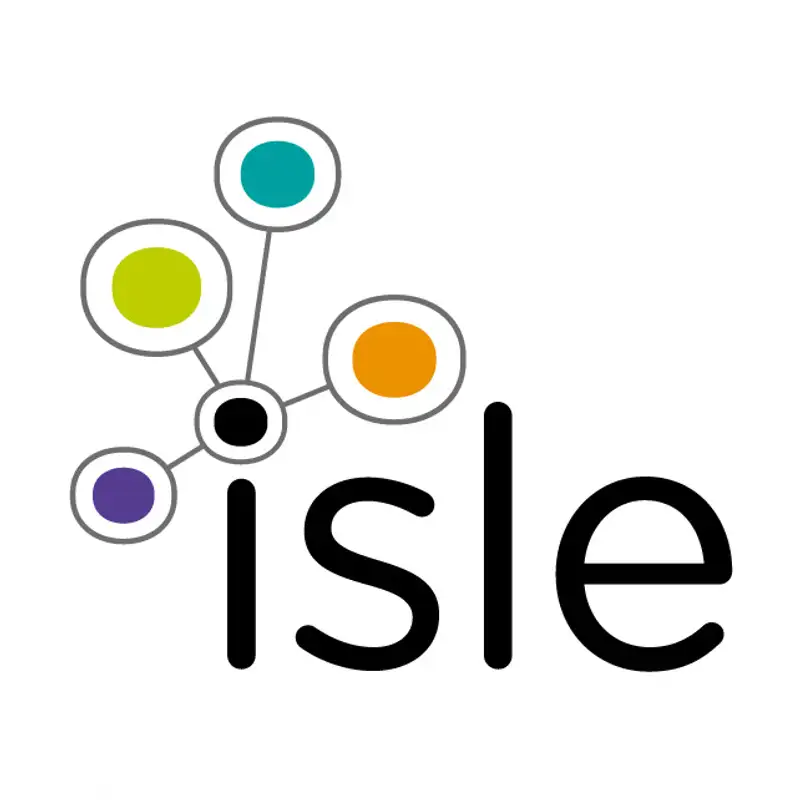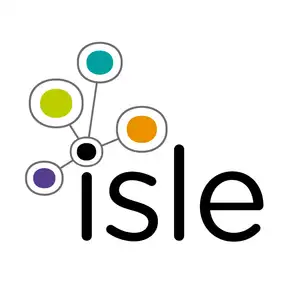
Leadership in Volatile times, with Nuno Brôco, Executive Chair Aguas do Tejo Atlantico, Portugal
[00:00:00] Piers Clark: Welcome to the Exec Exchange, 15-minute podcast in which a leader from the water sector shares a story to inspire, educate, and inform other water sector leaders from across the globe. My name is Piers Clark and my guest today is Nuno Brocco, the Chairman of Águas do Tejo Atlântico. I hope I've pronounced that correctly. Nuno, wonderful to have you join us.
[00:00:21] Nuno Broco: Thank you, Piers.
[00:00:22] Piers Clark: Did I pronounce that correctly?
[00:00:23] Nuno Broco: Yes, perfectly. More perfectly some Portuguese guys.
[00:00:27] Piers Clark: I think you're being unduly generous, but that's good of you. Now, let's talk about your background first. What did you study at university and what did you do when you left university?
[00:00:36] Nuno Broco: I'm chemical engineer with a master on biological sciences on yeast genetics. I start 25 years ago, long time working in Suez group as commercial project manager in industrial waters and that was an amazing school for me. And then I moved to ADP 15 years ago as head of engineer department where I remained for almost 10 years. And the last four as vice president of this company, Águas do Tejo Atlântico and the previous one that was Águas de Portugal VALOR.
[00:01:07] Piers Clark: You've mentioned ADP- the Águas de Portugal. The Portuguese water sector is quite complicated and different to other bits of the water sector. So, let's have the 90 second lesson on the Portuguese water system and the structure.
[00:01:20] Nuno Broco: ADP is a national company that is owned by the Portuguese state. This organization of the sector was made in 1993. The conditions of water service in Portugal were poor. We have a very fragmented sector. 10 million are in Portugal and we have at the moment more than 300 municipalities. Every municipality have their own water system management. 30 years ago, the government decided they need to do something different. They need to have scale. So, they create this ADP company and their own subsidiaries. And these are public partnerships between the central government through ADP and the municipalities.
[00:01:57] Piers Clark: Let me just play that back. In Portugal in the mid-1990s, you've got failing water and wastewater infrastructure. You've got 300 or more municipalities serving 10 million people, so every municipality is subcritical in size. So, the government decide to create a public partnership, as opposed to a public-private partnership, which is something we're much more familiar with. And the public bit was the central government and the local municipalities coming together as part of ADP, Águas de Portugal.
[00:02:25] Nuno Broco: Companies like Águas do Tejo Atlântico are owned by ADP, means central government, and the municipalities. ADP has 51 or more percent from the shares and the municipalities have 49 or less.
[00:02:38] Piers Clark: Now let's come to your company of which you are the chairman, Águas do Tejo Atlântico. It serves Lisbon and the area to the west of Lisbon. How many people does it serve?
[00:02:49] Nuno Broco: We serve around 2.3 million inhabitants. We are the biggest company on wastewater in Portugal. We manage 100 wastewater treatment plants, and we treat every year around 200 million cubic meters of wastewater.
[00:03:01] Piers Clark: And the fascinating thing is that you were appointed as chairman of the organization, but you've only got a three-year term until someone then decides to either anoint you with another three years or to thank you for your time and move you on and someone else gets the mandate.
[00:03:15] Nuno Broco: The rule in Portugal is that every mandate has three years or less, but usually three years. And after that, we can keep the same team. We can change all the team.
[00:03:25] Piers Clark: The management team is constantly refreshed and kept on their toes. Now, this, of course, is terribly exciting if you're working in the organization, but I imagine a nightmare if you happen to be in the role that you're in because you've arrived in an organization that you've got to get your head around and you've then got to work out what your vision is going to be and who you're going to mobilize that vision with in the organization. Now, you're about halfway through your three-year period. You've got a 30-year concession. So, when you arrived, the company was already five, six years into that concession. How's that gone? How's it been since you arrived in this role, what did you find, and how have you taken the organization on your journey?
[00:04:01] Nuno Broco: Águas do Tejo Atlântico is indeed the result of the fusion from the preliminary companies that exist at ADP. So, we were three companies that have been merged in a single company. When I arrived, me and my colleagues from the board were a little bit connected in terms of strategy with the basic rules of the concession contract. We felt that our strategy was too much connected from our perspective with the public services goals. We felt that, 30 years ago, that makes a lot of sense. Because, at the moment, we need to build new structures, build capacity to treat our wastewaters, comply with the permits for recharge. But today, I don't get my staff engaged in the mission if I tell them that I need to comply with the permit for recharge.
[00:04:47] Piers Clark: It's just not inspiring, is it? That's not what gets people out of bed in the morning.
[00:04:50] Nuno Broco: No. That was the moment we needed to stop. We had this reflection with our staff, of course with our shareholders, with our regulator, but also with the partners. We heard the partners about what they were expecting from Águas do Tejo Atlântico. And we have, together, constructed this strategy for the mandate for three years with nine pillars. We have the basic pillars for efficiency, purpose, the people... And then we have five growth pillars: the digitalization, the circular economy, carbon neutrality, strategic partnerships, and resilience. We have been very ambitious because it was for me, very important to engage my staff and my partners in the vision, in the ambition that we get for the company.
[00:05:35] Piers Clark: There's an angle that if you meet every one of your goals, you probably haven't been ambitious enough in setting the targets. You want to reach for the stars, but hopefully hit the moon.
[00:05:45] Nuno Broco: Yeah. For instance, regarding carbon neutrality. Our goal, to be the wastewater company operating in Portugal with the lowest carbon footprint... Will I arrive to that goal? I don't know. But I know that today, everyone in my company are engaging on that. Also very important is the capacity that we as utilities have to communicate this kind of strategy because sometimes, we as engineers and so on, we like to have strange words to communicate the strategy. We need to simplify the communication of the strategy. We have made that and we have made important efforts trying to reach everyone with our strategy in order to have partners for our pathway.
[00:06:25] Piers Clark: I imagine that I'm an operator who used to work in Lisbon Wastewater Treatment Works when it was a municipality, and I've gone through this process of seeing the organizations change around me. My day job has pretty much stayed the same. And suddenly, eight years ago, a new company is formed and I'm told I'm part of this new company, Águas do Tejo Atlântico, and I'm now working through and again, I'm still doing my day job. I'm still making sure that the wastewater treatment plant works. And then along comes Nuno Brocco, the new chairman. And he starts putting forward this new vision, this vision that's far more ambitious, that's far more stretching than anything we've seen before. How have I responded? Have you managed to win the troops over? Are they still working happily? Or have you had to change over staff?
[00:07:09] Nuno Broco: The first reaction that we had from our staff was fear. People had some fear regarding the ambition. That is important because when you are ambitious, you need to be ambitious enough to engage those that are innovative, that are proactive... But you also have in your organization, people that are more resilient to the change and they start to get some fear about failing. You need to evaluate and feel the organization in order to keep those that are more reactive to the change.
[00:07:37] Piers Clark: You're 18 months in. How are you feeling? Are you feeling pleased with progress or is there lots more to do?
[00:07:43] Nuno Broco: We are very motivated with the progress. We are now closing the accountability from 2024 and we have reached, in 2024, important figures regarding our strategy. For instance, today we produce 25 percent of our energy consumption. Last year we increased by 20 percent the amount of reused wastewater that we export to other sectors. We are working with the farmers, we are working with the municipalities, with the tourism industry... Regarding digitalization, we are also getting huge progress on that. When we arrived, we were a very poor company in terms of digitalization. We add all the ERPs, the asset management tools and so on, but we hadn't a common vision to manage that and information in our company. Today, we have built together a vision and ambition for that, and we are getting improvements. The way that you manage the data and information in your company is really decisive for the performance that you get regarding knowledge sharing, partnerships, even the generation of new value.
[00:08:45] Piers Clark: I still can't quite get my head around the fact that you only have 36 months to make an impact. And if you don't make it, they say, thank you very much, move over, we're going to bring someone else in. It creates a dynamism that just doesn't exist in many parts of the water sector elsewhere in the world. So, it's wonderful that you've grabbed the reins and are having so much fun in doing so. Now, we always finish with a personal question. What do you owe your parents? How much have they shaped the man that you are today?
[00:09:12] Nuno Broco: I owe to my parents almost everything starting with the life, of course, but that is basic. But maybe the most important things are the values. The value of being honest, the value of the work... so important, the value of the work. And the value of being yourself. And I'm very grateful to my dad, to my mother regarding the lesson that they always taught me about having my degree. My parents are very wise persons. They only have the elementary school, but they always teach me that I need to go for graduation to open the opportunities to growth.
[00:09:44] Piers Clark: And if I may say so, for your parents to push you into going into higher education when they hadn't gone on that journey themselves was an incredibly ambitious and dynamic thing for them to do. I can see how the parental skill set has passed down to the next generation. Nuno, it's been wonderful chatting with you. You have been listening to The Exec Exchange with me, Piers Clark, and my guest today has been Nuno Brocco, the executive chair of Águas do Tejo Atlântico, and I know I'm still pronouncing that wrong, but sue me. Hope to see you next time.
